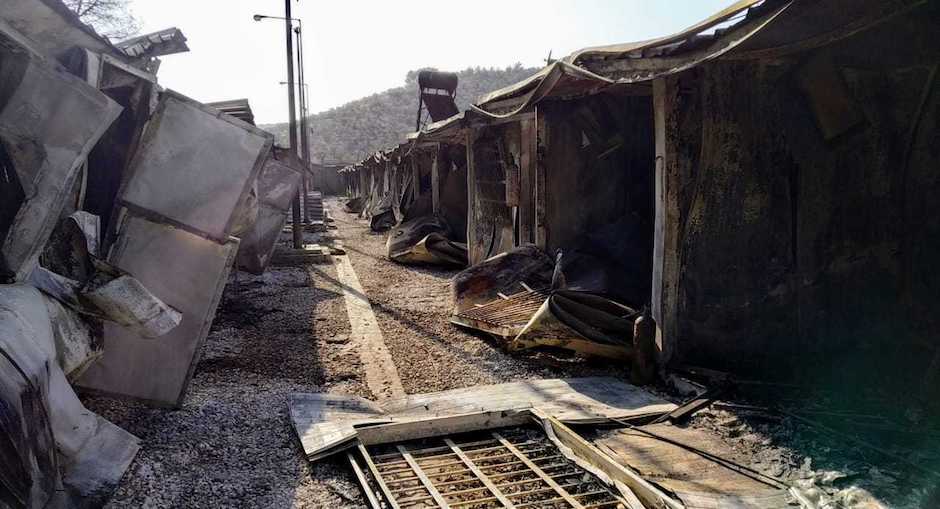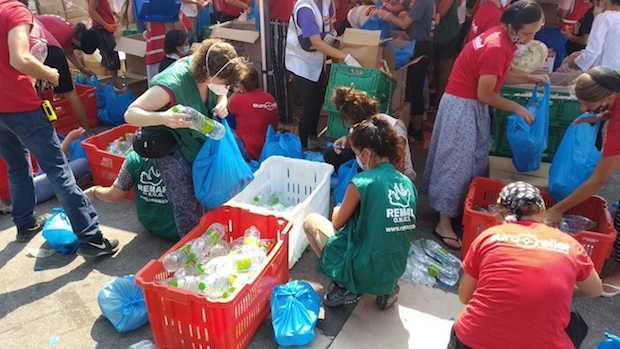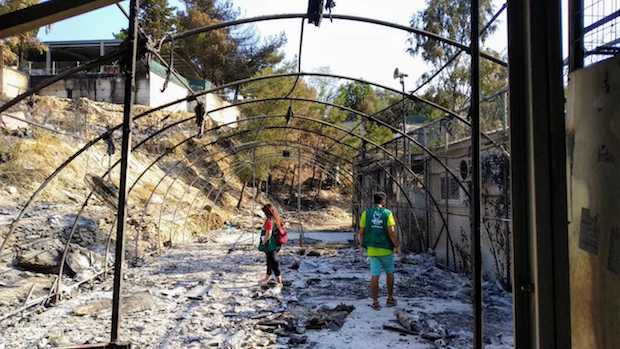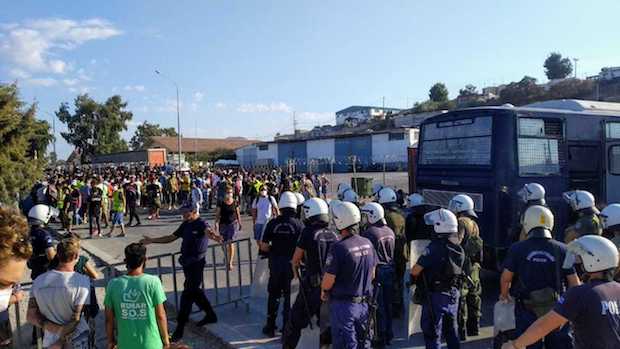Lesbos prepares ‘a new Moria’ as Europe reopens the migration debate
More than a week after the fire, “there is a lot of tiredness and protests”, a Christian aid worker on the island says. If it is permanent, it will have to be improved a lot. The EU announces a new Pact on Migration.
LESBOS (GREECE) · 18 SEPTEMBER 2020 · 15:25 CET

The machinery works just a few kilometres from Mytilene, the largest town on the island of Lesbos. It has barely been a week since a major fire completely devastated the Moria refugee camp, leaving 13,000 people crowded onto a secondary road.
The Greek government is already finishing preparing a new settlement with a capacity for 5,000 people.
“As an emergency measure, little else can be done. It cannot be said that the United Nations and the Greek government are not working. In a matter of two days they have set up a camp with many tents and marquees. Obviously it's a start”, Pablo Fernandez, head of the evangelical NGO Remar in Greece, told Spanish news website Protestante Digital.
Fernández explains that “it is not going to be a stable camp, and if it stays permanently, it will have to be improved a lot. But it will always be better than being on the streets. There, refugees and migrants will be under cover and together”.
After several nights sleeping outdoors in a supermarket car park, the outrage of the thousands of refugees and migrants trapped on the island, has not diminished. And even less so after the Greek government has assured that they will only accept asylum applications from those who pass through the new camp.

Around 1,200 already moved
“Now there is a lot of tiredness and many protests for everything that has happened. Most of the refugees do not want to be taken to another camp because they want to solve their situation, obtain their documentation and be able to move freely. It is good for them to go to another country, but changing one camp for another is not the option they want”, Fernandez stresses.
The Greek police begun to transfer hundreds of people to the new camp, where so far only about 1,200 of the approximately 13,000 who were hosted in Moria, have arrived.
Remar has had to divide its team into two groups, to guarantee the distribution of food in the new camp and also to the people who are still waiting in the streets. So far, the only ones who have left the island have been a few hundred unaccompanied minors, who have been received mainly in Germany.
EU new Pact on Migration
The start of the move to the new camp coincides with the State of the Union address by the President of the European Commission, Ursula von der Leyen.
The European leader pointed out that, in the coming days, the Commission “will put forward its New Pact on Migration”, with “a human and humane approach”.
She announced that the Dublin Regulation, which regulates the asylum application process in the EU, “will be abolished and replaced with a new European migration governance system. It will have common structures on asylum and return and it will have a new strong solidarity mechanism”.
“Saving lives at sea is not optional. And those countries who fulfil their legal and moral duties or are more exposed than others, must be able to rely on the solidarity of our whole European Union”, von der Leyen concluded.

A stumbling debate
The debate on the reception model has always been present in Brussels in recent years. The feeling, according to some organisations and aid workers, is that it has been reactivated in fits and starts, when some new tragedy occurred.
Despite the European Commission's announcement regarding migration, the institutions remain divided. The UN High Commissioner for Refugees (UNHCR), Philippe Leclerc, said that they “are putting pressure on the Greek authorities to speed up the asylum application process, so that people do not stay here too long”.
Meanwhile, the Greek Prime Minister, Kyriakos Mitsotakis, has just agreed to transfer more than 1,500 migrants and refugees to Germany, but warned that it should “in no way be seen as rewarding those who attempt to enter the country illegally, rather, it brings back to the European debate the issue of the relocation of refugees”.
The tension has not lessened on Lesbos. In addition to the demands for solutions from refugees and migrants, there is pressure from neighbors in the area and from xenophobic groups, who are not in favor of the presence of any settlement on the island and in recent months have attacked aid workers.

Coronavirus cases within the camp
The situation has worsened because of the coronavirus. There were at least 35 positive cases in Moria and Remar believes that the strict isolation measures and the lack of adaptation of the camp to guarantee the essential goods for a confinement were behind the fire.
They also underline that other camps, such as Malakasa, near Athens, are under the same pressure because of the positives cases of Covid-19 that they also have.
“We have long feared and warned about what would happen in crowded refugee camps, where social distancing is almost impossible, and where lockdowns on movement and tight restrictions over humanitarian access are creating dehumanising conditions”, President and CEO of World Vision International, Andrew Morley, says.
Furthermore, World Vision warns that Covid-19 can affect 26 million refugees around the world, 80% of them located in developing countries.
“International community must not only support efforts to limit the spread of COVID-19 within camps but also ensure refugees and refugee children lived in conditions with physical and emotional support to give them hope” he concludes.
Published in: Evangelical Focus - europe - Lesbos prepares ‘a new Moria’ as Europe reopens the migration debate
